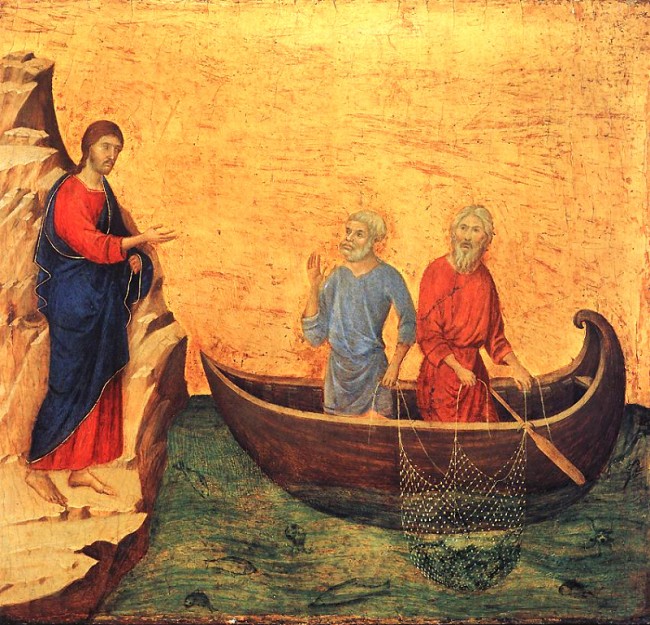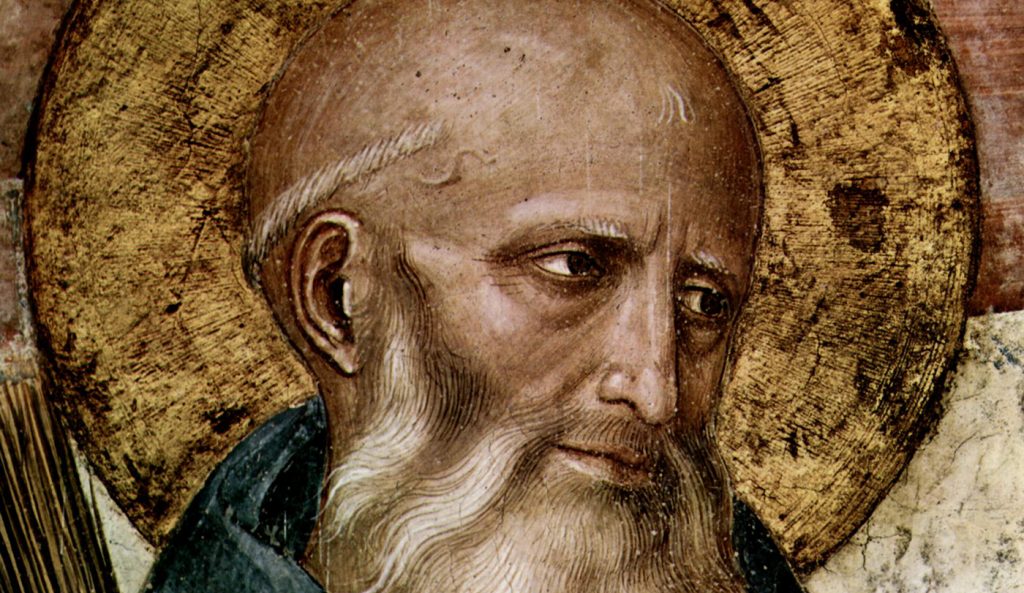Let us walk in His paths (Prologue IV)

4 Jan. 5 May. 4 Sept.
Having our loins, therefore, girded with faith and the performance of good works, let us walk in His paths by the guidance of the Gospel, that we may deserve to see Him Who hath called us to His kingdom.
Benedictine life embraces a paradox: on the one hand, we make a vow of stability that inserts us in a particular monastic family and implants us in a specific place and, on the other hand, we make a vow of conversion of manners that obliges us ceaselessly to move on, to move forward, and to leave the past behind. “One thing I do”, says the Apostle, “forgetting the things that are behind, and stretching forth myself to those that are before, I press towards the mark, to the prize of the supernal vocation of God in Christ Jesus (Philippians 3:13–14). It is in view of this “forgetting the things that are behind and stretching forth towards the mark” that Saint Benedict would have us gird up our loins “with faith and the performance of good works”.
Know you not that they that run in the race, all run indeed, but one receiveth the prize? So run that you may obtain. And every one that striveth for the mastery, refraineth himself from all things: and they indeed that they may receive a corruptible crown; but we an incorruptible one. (1 Corinthians 9:24–26)
“By the guidance of the Gospel”: it seems to me that we can hear in this phrase a reference to the Life of Saint Antony, the Father of Monks. Saint Athanasius tells us that the young Antony, entering a church during the chanting of the Holy Gospel, was so seized by the words of Christ that, straightaway, he left the church to obey what he had heard. The Gospel is the monk’s primary and supreme reference. The liturgic Gospel informs all of Benedictine life: it is proclaimed at Matins on Sundays and the Greater Festivals, and daily at Holy Mass. Again, the Gospel recurs in various ways throughout the liturgical day, notably in the Communion Antiphons of Holy Mass, and in the Magnificat and Benedictus Antiphons. Like Saint Antony of Egypt, the monk listens to the Gospel so attentively that he loses not a fragment of it : “For he [Antony] had given such heed to what was read that none of the things that were written fell from him to the ground, but he remembered all, and afterwards his memory served him for books” (Life of St Antony by St Athanasius).
For Saint Benedict, the goal of the monastic life is “to see God who hath called us to His kingdom”. Man is created to see God, here below in the light of faith and, hereafter, in the light of glory. The psalmist gives voice to the deepest aspiration of the human heart: “My heart hath said to thee: My face hath sought thee: thy face, O Lord, will I still seek” (Psalm 26:8), and again, “My soul hath thirsted after the strong living God; when shall I come and appear before the face of God?” (Psalm 41:3). In the hymn, Adoro Te Devote, Saint Thomas expresses the same yearning:
Iesu, quem velatum nunc aspicio,
oro fiat illud quod tam sitio;
ut te revelata cernens facie,
visu sim beatus tuae gloriae.
- Jesus, whom now veiled, I by faith descry,
- What my soul doth thirst for, do not, Lord, deny,
- That thy face unveiled, I at last may see,
- With the blissful vision blest, my God, of Thee.
The kingdom is that for which a man resolves to lose all else. The monastic life (which is, in effect, the Christian life painted with broader strokes and brighter colours) is a great risk. It calls for the investment of all that one is and of all that one has in order to obtain “the one thing necessary” (Luke 10:42). Increasingly, in contemporary culture, men are unwilling to risk all; afraid of saying a definitive and binding “Yes”; unwilling to choose lest, in choosing, one lose all other options. This accounts, not only for the reluctance to to pronounce the marriage vows, but also for the fear of making any other kind of lifelong commitment. And yet, the words of Our Lord, are clear:
The kingdom of heaven is like unto a treasure hidden in a field. Which a man having found, hid it, and for joy thereof goeth, and selleth all that he hath, and buyeth that field. Again the kingdom of heaven is like to a merchant seeking good pearls. Who when he had found one pearl of great price, went his way, and sold all that he had, and bought it. (Matthew 13:44–46).

